Get ready to enter the thrilling world of nature’s chase! We’re diving into the incredible stories of predators who dare to take on skunks, the masters of stink. You’ll be surprised by the animals that find these smelly creatures a tasty treat. From winged hunters soaring above to sneaky assassins lurking in the shadows, join us on a journey to discover the brave predators who’ve mastered the art of outsmarting the skunk’s smelly defense and feasting on their aromatic meal.
What Animal Eats a Skunk?
You wouldn’t think anything would want to eat a skunk, right? I mean, their defense mechanism is legendary! But believe it or not, there are quite a few brave (or maybe just hungry) critters out there who don’t mind a little stink with their meal. Let’s find out who these daring diners are!
From the Sky: Not Afraid of a Little Smell
Up in the sky, we’ve got some sharp-eyed hunters who aren’t fazed by a little odor. These birds of prey have a few advantages that make skunks a viable, if pungent, prey item:
- Keen Eyesight: Eagles, hawks, and owls have incredible vision. They can spot a skunk from way up high and swoop down before the skunk even knows what’s happening. Talk about a surprise attack!
- Aerial Advantage: By attacking from above, birds of prey can avoid the worst of a skunk’s spray. A direct hit to the face can be debilitating, but a glancing blow from above is less likely to ruin a hawk’s day.
On the Ground: Quick, Clever, and Hungry
Down on the ground, we’ve got some cunning hunters who use both speed and smarts to outmaneuver a skunk’s defenses.
- Coyotes and Wolves: These canids are super fast and can easily outrun a skunk. They often use their agility to harass a skunk, trying to wear it down and make it waste its spray.
- Dogs: Domestic dogs, well, they’re always up for a chase, but a skunk encounter might leave them regretting their enthusiasm! While dogs will sometimes kill and eat skunks, the foul odor is usually enough to deter even the most food-motivated canine.
- Badgers: These guys are like the masterminds of the animal kingdom when it comes to skunks. Badgers have thick hides and a high tolerance for skunk spray. They’re also expert diggers, and they’ll happily dig a skunk right out of its own home!
The Unexpected Diners: You Won’t Believe This!
Here’s where it gets really interesting. Besides the usual suspects, there are some animals you wouldn’t expect to be skunk eaters.
- Great Horned Owls: These powerful owls have a poor sense of smell, making them practically immune to skunk spray. Their sharp talons and powerful beaks make quick work of a skunk, even if it tries to unleash its defense mechanism.
- Bobcats: These stealthy wildcats are opportunistic hunters and might take advantage of a skunk caught off guard. Their quick reflexes can sometimes help them avoid a direct hit from the spray.
- Cougars: Even cougars, those stealthy mountain lions, have been spotted with skunks on their menu.
- Vultures: And believe it or not, even vultures, those birds known for eating anything, will sometimes snack on a skunk!
But what about our feline friends, you ask? Domestic cats are actually pretty smart when it comes to skunks. They can usually smell the danger before things get stinky and will typically steer clear. Can you blame them?
Skunk Predators: A Comprehensive Guide to Their Natural Enemies
Sure, skunks are notorious for their powerful stink bombs, which often make them an unappetizing choice for many creatures. However, some brave souls in the animal kingdom aren’t fazed by a little bit of odor and consider skunks a potential meal. Let’s delve further into the strategies these predators use to make a meal of a skunk.
Who Dares to Dine on a Skunk?
Let’s talk about the bold predators who aren’t afraid of a little stink:
From the Skies:
- Great Horned Owls: These nighttime hunters have a poor sense of smell, making them practically immune to skunk spray. Their sharp talons and powerful beaks make quick work of a skunk, even if it tries to unleash its defense mechanism.
- Red-tailed Hawks: These daytime raptors have incredible eyesight, easily spotting a skunk from high above. A swift dive and a deadly grip are usually enough to overpower a skunk.
- Eagles: These majestic birds of prey are at the top of the food chain and have been known to snatch a skunk when other food sources are scarce. Their powerful talons and beaks make them formidable opponents.
On the Ground:
- Coyotes: These clever canines are known for their cunning hunting techniques. They often work together to distract a skunk, making it vulnerable to attack.
- Foxes: Similar to coyotes, foxes are intelligent and agile hunters. They might try to outsmart a skunk by maneuvering it into a position where it can’t effectively spray.
- Badgers: These fearless and tenacious creatures are notorious for their digging abilities, allowing them to unearth a skunk hiding in its burrow. Badgers have a thick hide that offers some protection from skunk spray.
- Bobcats: These stealthy wildcats are opportunistic hunters and might take advantage of a skunk caught off guard. Their quick reflexes can sometimes help them avoid a direct hit from the spray.
How Do Skunks Defend Themselves?
Skunks are equipped with a potent defense mechanism – their infamous spray. This foul-smelling liquid, produced by glands near their tail, is incredibly effective at deterring predators. A direct hit can cause temporary blindness and intense discomfort.
However, this defense isn’t foolproof. Predators might catch a skunk off guard, especially if it’s young or inexperienced. Additionally, some predators, like the great horned owl, have a poor sense of smell and are less bothered by the spray.
The Bigger Picture
The relationship between skunks and their predators is a fascinating example of the delicate balance within ecosystems. While skunks have developed an effective defense mechanism, predators have adapted their hunting strategies to overcome this challenge. It’s a constant game of survival, showcasing the incredible diversity and resilience of the natural world.
Can Anything Eat a Skunk? Debunking Myths and Exploring the Facts
It’s true that skunks aren’t exactly top of the food chain, with that whole stink-bomb defense mechanism and all. You might think nothing in its right mind would want to chow down on something that could turn their next meal into a stinky nightmare. But nature is full of surprises, and some hungry critters have figured out how to handle a little bit of stink if it means getting a meal.
Think about birds of prey: hawks, eagles, owls, those guys. They’ve got a serious advantage being up in the air. They can swoop down and snatch a skunk before it even knows what’s happening, let alone have time to aim and fire that infamous spray.
Down on the ground, it’s a different story. But don’t count skunks out just yet. Animals like coyotes, wolves, and even badgers have learned a few tricks. They use their speed and agility to outsmart skunks, tiring them out before they get a chance to unleash their smelly weapon. Badgers, in particular, are a skunk’s worst nightmare. These guys are expert diggers with short legs and sharp claws, perfect for digging skunks right out of their cozy burrows, leaving them completely exposed.
So, the myth that nothing eats skunks? Totally busted! They might have a powerful defense mechanism, but some hungry animals aren’t afraid of a little (or a lot) of stink if it means a good meal. It’s a good reminder that in the wild, there’s always a bigger, bolder, or just plain hungrier creature out there.
From Above and Below: Examining the Predators That Target Skunks
We’ve already talked about how skunks are famous for their black and white stripes and, of course, their super smelly defense mechanism. But even with that stinky spray, they still have to watch out for danger from creatures both in the sky and on the ground. So, who exactly is brave enough to mess with a skunk? Let’s meet these fearless predators!
Winged Wonders: Skunk Hunters from the Sky
High above, it’s a bird-eat-skunk world, and these winged predators use their keen eyesight and amazing flying skills to snag a meal.
- Eagles: These majestic birds are like the kings and queens of the sky. They can spot a skunk from really far away and then dive down like a lightning bolt to catch their unsuspecting prey.
- Hawks: Hawks are masters of stealth. They soar silently above, patiently watching for the perfect moment to swoop in and grab a skunk. Talk about a bad day for a skunk who wanders into a hawk’s territory!
- Owls: As night falls and the world sleeps, owls are just waking up, ready to hunt. Their incredible night vision allows them to easily find and catch skunks in the dark. It’s like they have built-in night-vision goggles!
Land-Loving Hunters: Dangers on the Ground
Skunks might think they’re safe on the ground, but plenty of predators lurk in the shadows, ready to pounce.
- Coyotes: These clever canines are like the tricksters of the animal world. They’re incredibly agile and often hunt in packs, using teamwork to outsmart and surround skunks. It’s hard to outrun a whole team of hungry coyotes!
- Wolves: Wolves are like the ultimate pack hunters. They’re bigger and stronger than coyotes and are known to include skunks on their menu. When a pack of wolves sets its sights on a skunk, it’s unlikely to escape.
- Badgers: These tough little creatures are like the construction workers of the animal kingdom, famous for digging burrows. Badgers have no problem digging skunks out of their hiding spots, completely ruining their best defense strategy!
Outwitting the Stink: How Predators Handle the Spray
A skunk’s best weapon is undeniably its terrible smell. But some predators have found ways to deal with the stink and even use it to their advantage.
- Surprise Attacks: If a predator can ambush a skunk before it has time to unleash its smelly spray, they have a good chance of getting a meal without the stinky side effects. It’s all about speed and the element of surprise!
- Nose Blindness: Some animals, like cougars and bobcats, aren’t as bothered by skunk spray as other creatures. They’ve developed a sort of resistance to the smell, meaning they can hunt skunks without batting an eye (or plugging their nose!).
So, while skunks might seem invincible with their stinky spray, plenty of predators have learned to overcome these defenses. It’s a tough world out there, even for the smelliest of creatures!
Do snakes eat skunks? What about skunks eating tomatoes? Or do skunks eat bird seed? The answer to all of these questions is yes! Skunks are omnivorous animals, which means that they eat both plants and animals. They are also opportunistic feeders, which means that they will eat whatever is available to them. If you’re curious about what else skunks eat, read on to learn more about the diet of these fascinating creatures. Incidentally, skunks also eat eggs and insects.
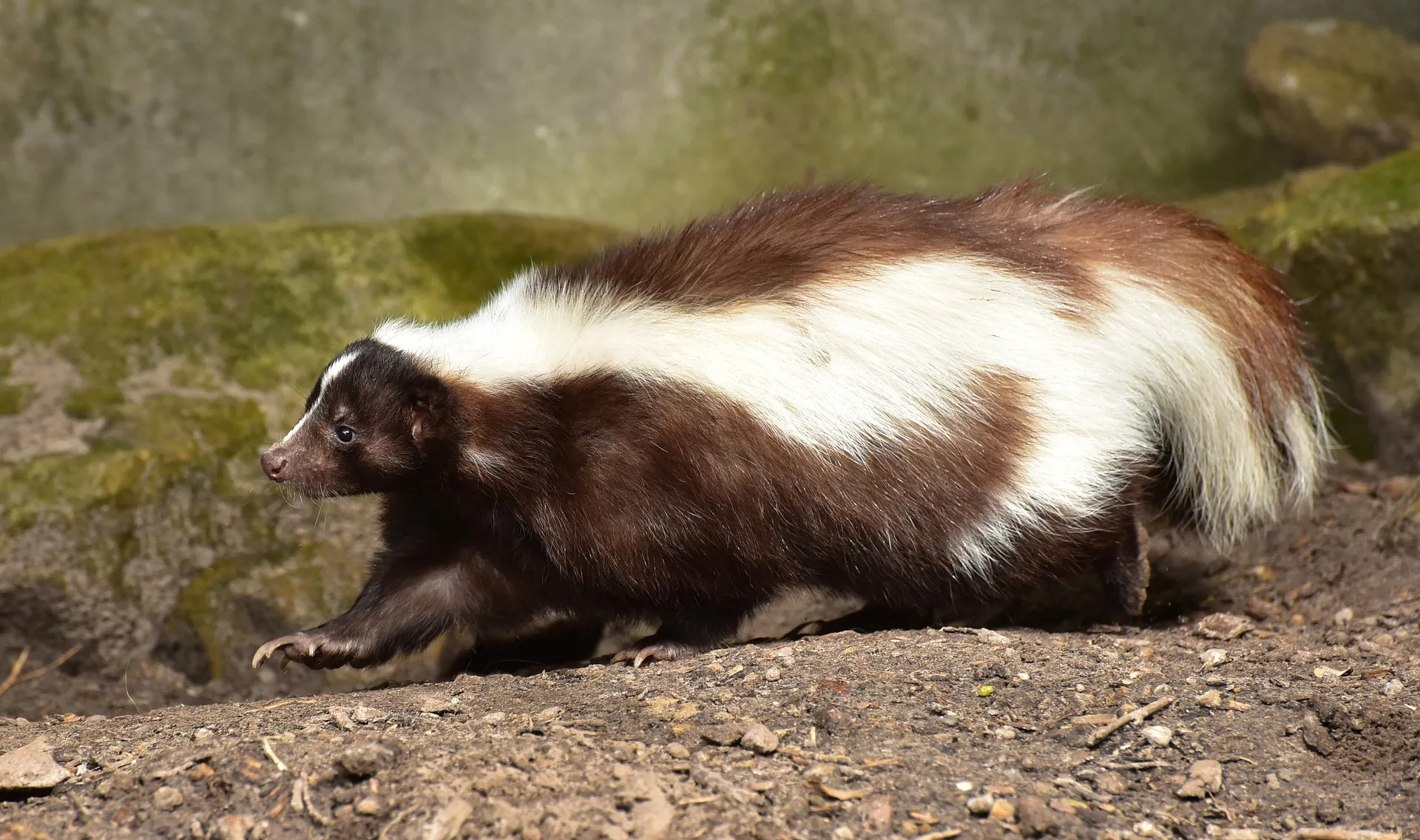
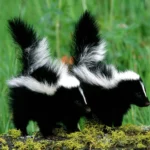
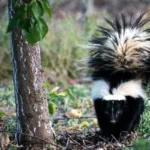
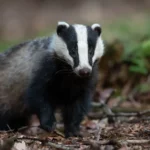
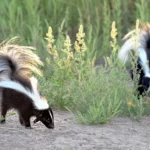
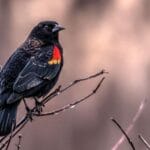











Comments are closed.